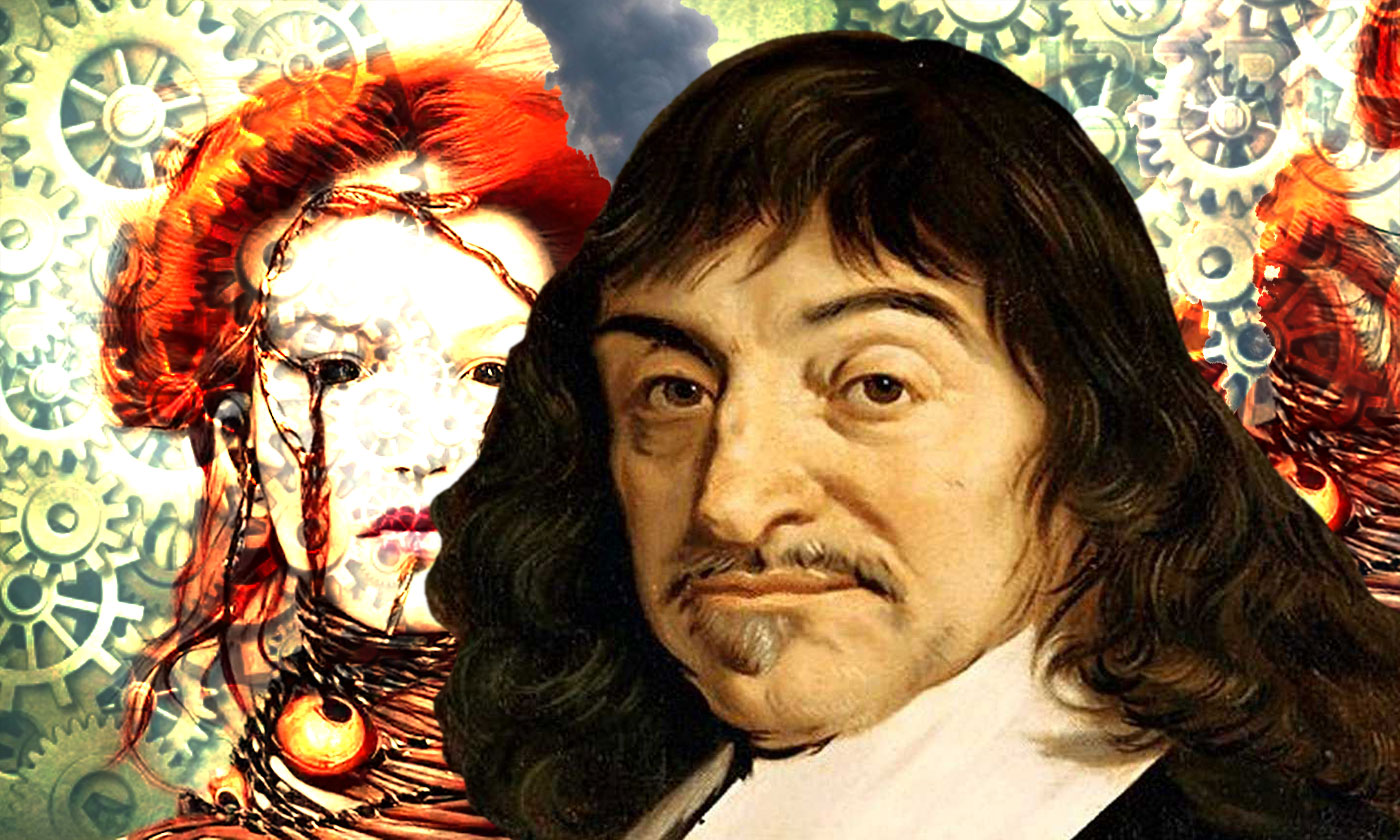
Left brain or right brain? Reasoning or intuition? Logic or creation? Architect or poet? The tragedy of our time is to refuse half of our brains. And to ignore where understanding really comes from. Shaken by a deteriorating economic context, we no longer ask ourselves the real questions. Stuck on the rails of a single track, scientists are no longer exploring the right paths. Researchers are struggling to find the fertile hypothesis. It was not the same for Descartes…
Priority to Intuition
Yet the solution is simple, all the eminent scholars of the past have applied it in their research, and the great discoveries were made only thanks to it. Reason is not the right instrument to discover. Only intuition triggers the spark. The reasoning intervenes in a second time, to verify, corroborate, to shape.
I’ve never done one of my discoveries through the process of rational thinking.
On this point as on many others, the great Einstein is my model. Its simplicity and humility should inspire all the infertile peacocks, fastidious discoverers of their own nothingness. Under their degrading influence, our age glorifies the productivist nullity, the vain conformism, and forgets the essential, this rare quality which prelude to genius. For only genius can turn the tide and save our decaying society.
The intuitive mind is a sacred gift and the rational mind is a faithful servant. We have created a society that honors the servant and has forgotten the gift.
Contrary to what one might think, Descartes for whom reason passes first and above all, Descartes the hyper rationalist did not use reason for his greatest discovery. He used his madness. Unfortunately, he did not draw the right conclusions, a fatal mistake that no one noticed.
Who is Descartes?
René Descartes is a French mathematician, physicist and philosopher, born 31 March 1596 in La Haye-en-Touraine and died 11 February 1650 in Stockholm. He is considered the founder of modern philosophy.
The greatest French philosopher did not live in France. He chose to settle in Holland. Why? And why? Not content with taking refuge in Batavian soil, Descartes moved there constantly. Did he have any honest reasons or something to hide? It looks good. But it may also be that the philosopher was experiencing by all these changes his famous theory of continuing creation.
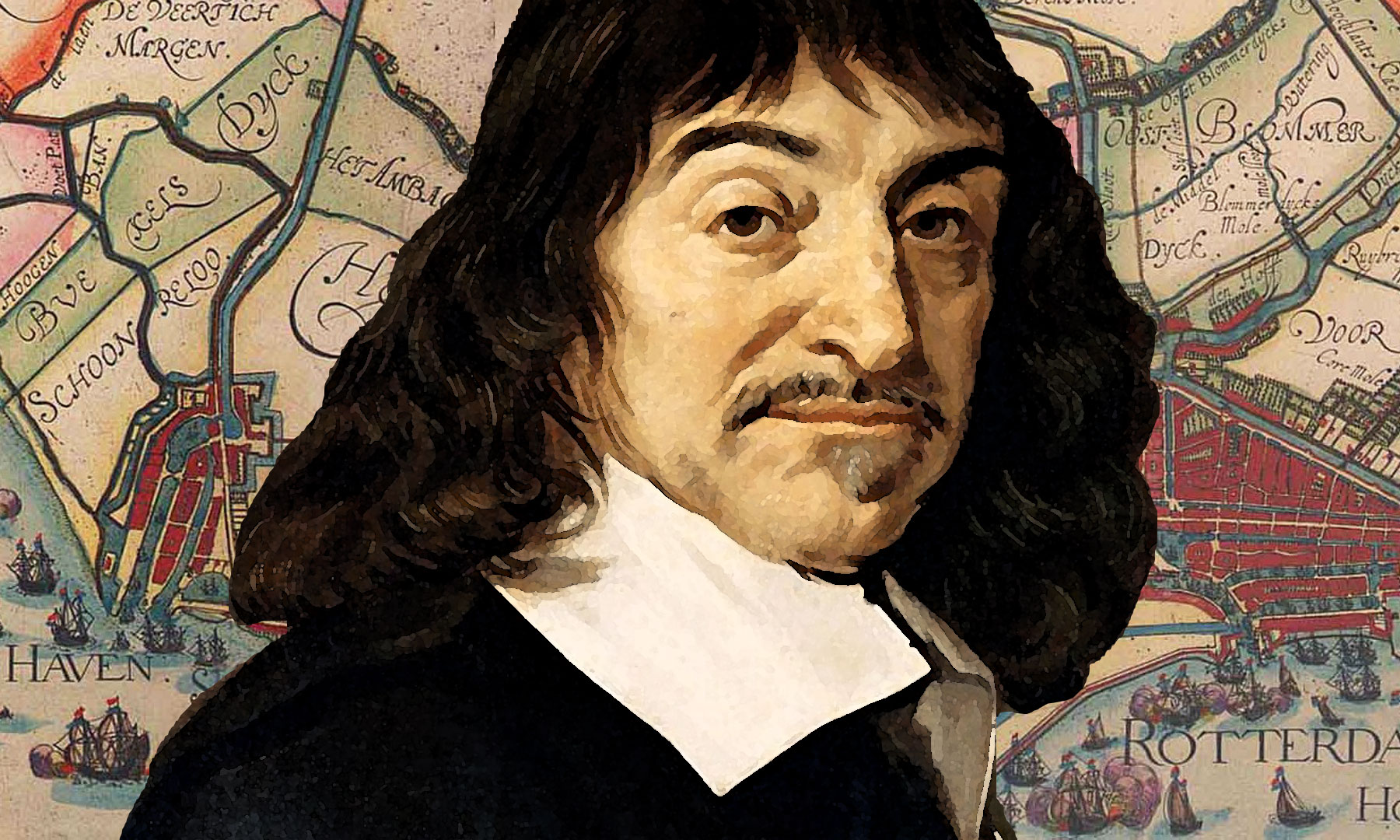
In His Stove
It was in Holland, in his stove according to his expression, that he composed the work that made him famous, the Discours de la Méthode. The Nordic countries are used to cold weather. The houses are equipped to ensure maximum comfort for residents. The Dutch imagined a warm room they call a stove.
It is a small room whose walls, floor and ceiling are tiled in blue and white, in the precious Delft earthenware. In the centre of the said room is a stove and its chimney dressed in the same earthenware. Thus the room is one with its stove, hence its name.
Pipe Smoker
Descartes used to spend the winter days there, as he explains in the introduction of his Discourse of the Method. The stove purred while the philosopher in his robe smoked a pipe of the same white and blue earthenware. Rather, it petulant, that is the old verb for smoking. So was tobacco known at that time? But yes.
Tobacco is one of the American plants whose introduction has profoundly changed the lifestyle of Europeans. Christopher Columbus discovered it in 1492, upon his arrival in San Salvador; in 1535, the explorer Jacques Cartier describes the use of tobacco by the Amerindian population of New France. The geographer André Thévet brought him back from Brazil in 1556, to cultivate him in his garden in Angoulême. In the 16th century, tobacco was known for its medicinal properties, which were largely controversial in the following century when its consumption reached all strata of society.
Descartes was smoking his Dutch tobacco. But in my humble opinion, he had to add something more…
Pagès’ Investigation
The Dutch East India Company, or Vereenigde Oostindische Company, is a trading company created in 1602 by the Republic of the Seven United Provinces of the Netherlands. It was created to wrest from Portugal the monopoly of trade with the East Indies, namely Asia and the Indian Ocean. From the very beginning, the import of spices and drugs was its main business. Pepper, pepper, but also Indian hemp or opium, all these commodities circulated in Holland. And probably also in France, the richest and most populous country in Europe at that time.
Descartes would have gotten used to smoking cannabis, choosing to go abroad to be closer to the source. And like most current consumers, the philosopher would have become a dealer to get it at the best price. Which explains his frequent moves, a characteristic behavior of drug dealers to escape the police.
I did not find these facts alone. Frédéric Pagès, an associate of philosophy, wrote a curious little book about twenty years ago called Descartes et le cannabis. “Pagès went to Amsterdam to investigate this mystery. He met Tobias, a Frenchman who runs a «cannabis bar» in the Dutch capital, where drugs are over the counter. Tobias is an ironic admirer of the great Rene, and even a cynical admirer of the great philosopher: Tobias firmly maintains that Descartes smoked hash. Frédéric Pagès investigates; he turns and turns in Holland, the United Provinces of the 17th century, meets people who were interested in René, wonders why Descartes the Tourangeau, left France with arms and luggage.” (source)
If you are fond of this kind of anecdotes, this little book is no longer published, but you can still get it for a small price.
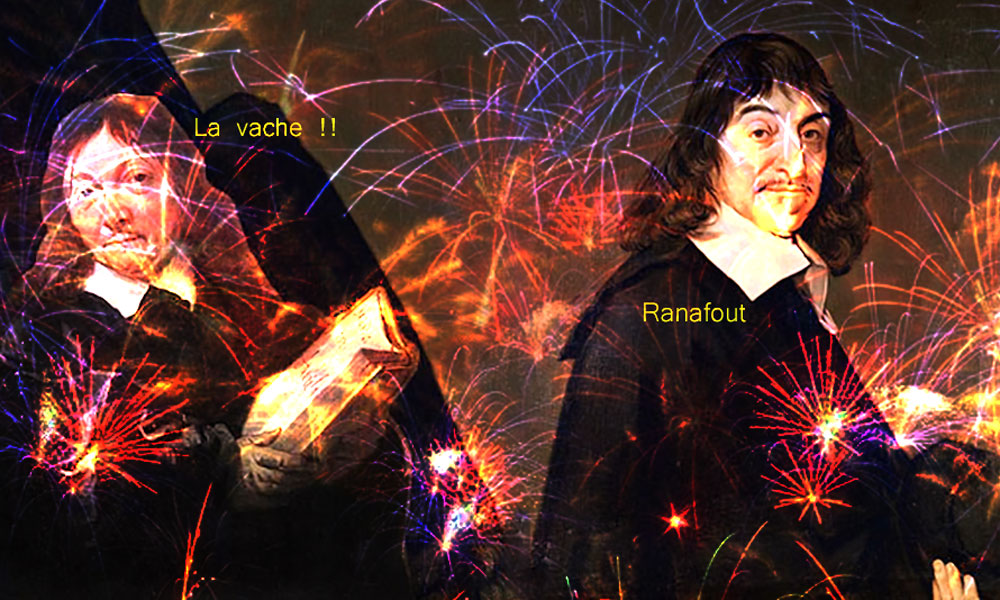
Descartes Playing
We understand better what allowed him his famous discovery: our senses deceive us. He played smoke, he experienced creative exaltation, it was not counting the paranoia that seizes the hashish smoker. Hashish is the common name for cannabis resin. It is derived from resin extraction from female cannabis flowers. It provides a intoxication that begins with a gentle exaltation, and as a result of abuse, which ends in paranoia.
Unlike alcohol, cannabis intoxication does not lead to loss of control, nor anything that resembles ethyl coma. But the sensation of floating is real. Hashish is not hallucinogenic, although it often causes a sense of strangeness that can be disturbing.
In order to persuade himself that his senses were deceiving him, Descartes had to smoke a particular hashish, the Bombay Black, a powerful opium mixture. Or was he smoking a mixture of his composition, adding some other drug to his cannabis. Anyway, the fumette turned his head. The euphoria of the first puffs was tinged with uncertainty. A floating sensation took hold of him.
Gradually, anxiety and sensory instability became paranoia. Who am I? Where am I? How am I wandering? Panic occurs, nothing is real, René doubts his own existence.
I doubt so I am
He doesn’t know which one to turn to. The stove he was in, a windowless room, reinforced the paranoid feeling. Totally destabilized, the poor boy found only one island of certainty in an ocean of inconsistency. Timid, reason points. I think so! he exclaims. He clings to this lifeline with the energy of despair.
He jumps with joy, shudders and takes notes. Seeking a solid basis for his thinking, Descartes threw himself into an intellectual demolition undertaking, methodological doubt. With this redeeming doubt, Descartes manages to deflect all the information that reaches him: our senses deceive us, our representations deceive us, our dreams deceive us, our women deceive us.Sorry. You should have read “our boyfriends deceive us”.
To reach the truth, we must get rid of all the received opinions and rebuild the whole system of our knowledge.
What I am a true Cartesian, because the truth is my prey and to catch it, I had to get rid of the whole system of my knowledge.
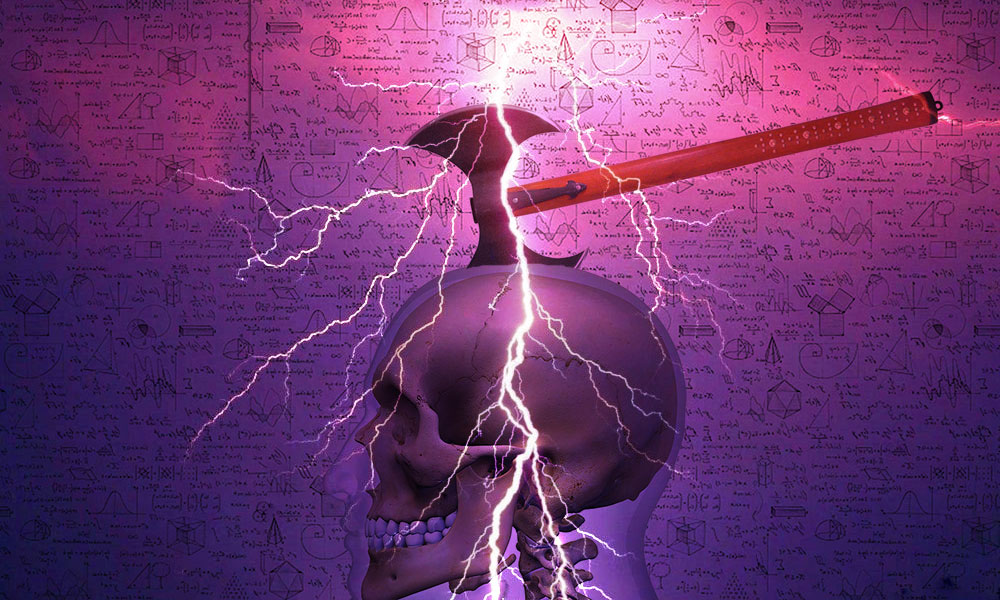
Discovering the Cogito
Nothing resists Cartesian doubt. Exalted by cannabis fumes, he comes to doubt his own existence. Flip total, petweed Word for smoking is too strong in Holland, our philosopher loses his footing. At the very end, René finds this firm ground: “I think!” He thinks he is saved.“If I think, it is therefore that I exist! And if I exist, everything becomes possible again!” He is born again.French “rené” means born again.
Cogito ergo sum, writes René Descartes in his frying pan, all smoky with Dutch hemp. So I think I am. Did he have to dig himself to lay us such a beautiful egg! Of course! he exclaims. Our senses deceive us, the picture they give us of reality is not reliable, reality is a lie. Only my thought belongs to me! It alone is reliable, when everything collapses around me like a house of cards, there is only my thought to hang me!
The Method
Excited by his discovery, he wrote without rereading a small square book, the Discours de la Méthode. This speech that he wanted philosophical work had the effect of an existential burn. His book tells by the menu the desperate struggle of a spirit that opens and at the same time absolutely refuses to open. This basic and sordid conflict could have put off if it were not told with a certain elegance, because Descartes has graceful high. So a Dutch publisher takes the risk of taking it out under the cloak.
And there, astonishment: this opuscule immediately met with an inexplicable success and became, full of bad luck, the rule to think of France for the next four centuries… or more, because affinities. That’s why the Hexagon is square. Since Descartes, my poor country of France despises everything that is not coherent, logical, drawn in line, in short, very square. On the contrary, England chose sensualism. Smelling experience, shuting out systems, English wisdom Hume and Locke.
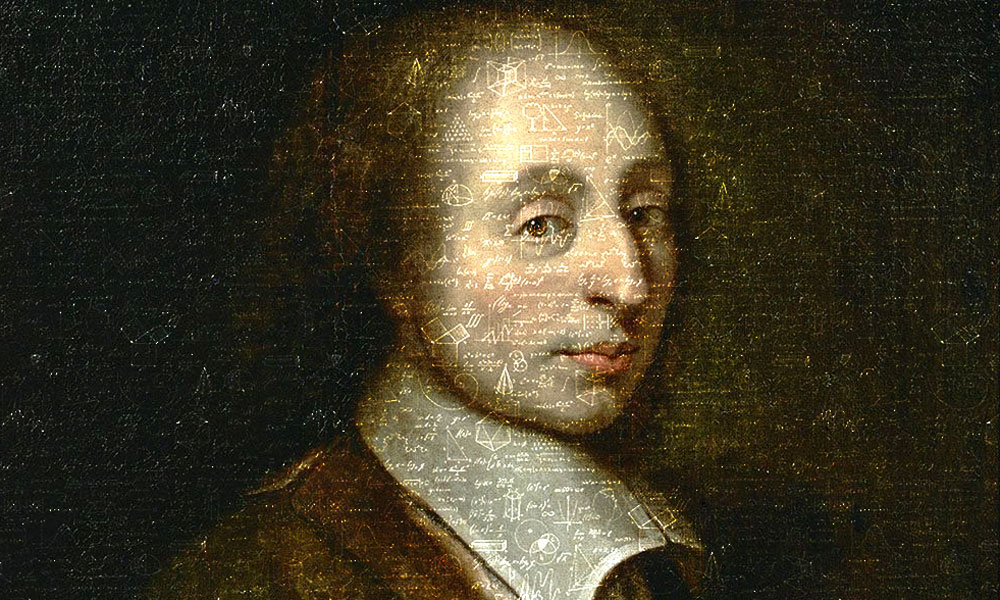
Finesse or Geometry?
The difference in point of view is obvious. Take the French garden and the English garden. In the latter, everything imitates nature, while the French garden imitates only geometry. So much for the spirit of finesse, we settle for the poetry of the geometer. Spirit of finesse or spirit of geometry? This famous couple invented by Pascal praises the spirit of geometry. Descartes passed by there: barely older, he is his master to think. And that’s just the beginning.
While the French mind is reasoning, it stands above the object of its study. Il comprend = it takes together. On the other hand, the English spirit experiences and feels, to better achievement, it understands = it stands below.
The Opposite
While he hastily elaborates the raft that will allow him to stay afloat on the sea dismantled by hash, René is seriously mistaken. As a result, he utters an enormity: thinking as proof of being. False! Being cannot be thought. Who wants to be needs to stop the thought. The mental flow hinders the awakening, so we separate from the being. Too bad that René did not support the hemp batave. It’s “I think, so I’m not” you should say.
Yes, too bad. Without the shackles of Cartesianism, Europe would have gained four centuries on its path of awakening. It is curious that everyone has bought into this utter nonsense.
Descartes’ major invention, rationalism, does not mix well with metaphysics. “Rationalism is defined essentially by the belief in the supremacy of reason, proclaimed as a true “dogma”, and involving the denial of pure intellectual intuition, which logically leads to the exclusion of all true metaphysical knowledge.” (source)René Guénon, The Reign of Quantity
I live in the house of possible. It has more doors and windows than the house of reason.
One may wonder whether Cartesian rationalism is not the foundation on which individualism was built. This same individualism whose detestable excesses today poison all aspects of social life.
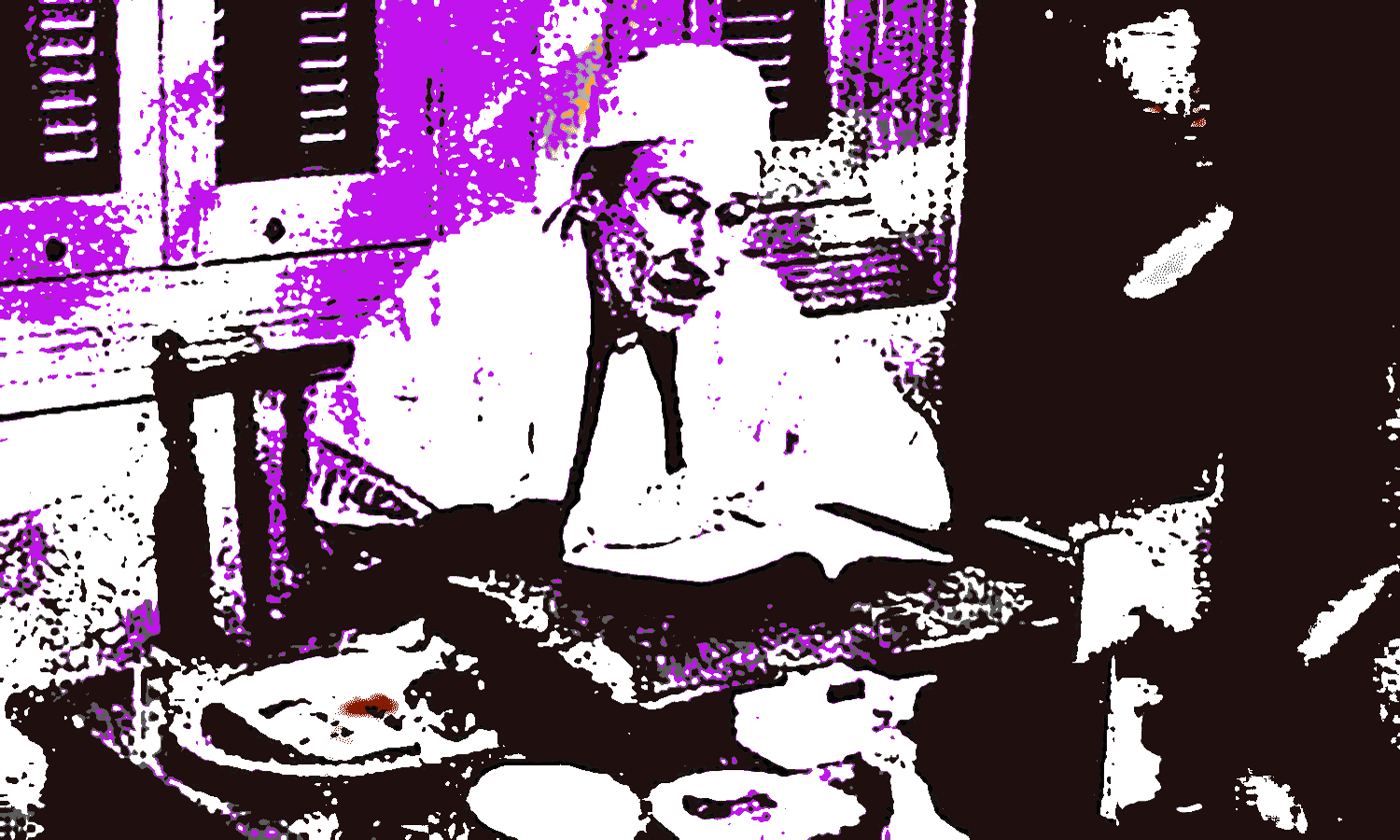
Common Mistake
Is there still time to reverse this trend? Do we have the means to do so? Do we really want to? To let go of individualism and rationalism is to sink into collectivism and madness. If the devil is in the details, he is even more often in their absence. Hasty generalizations that erase subtle differences are more diabolical than nitpicking.
How many times have we read under the pen of a scientific popularizer or hear in the microphone of the Bogdanoff brothers, this famous cry of victory:
“Every day, Science moves further back the limits of the known world.”
“In fact, it is exactly the opposite of the truth: never have these limits been so narrow as they are by this so-called profane science, and never have the world or man been so reduced as to be reduced to mere bodily units, not in a position to communicate with any other order of reality”. (source)René Guénon, The Reign of Quantity
Admit that human life be ruled by reason, is to destroy all possibility of life.
Apollinian vs Dionysian
With reason, we calculate, we speculate, we mentally everything, we reduce everything that presents itself in equation. By reason, we are a perfect production tool. Productivity must at all costs eliminate alternatives and other rebels: artists, awakened, sighted, passers-by and beggars of light. The more rational the advent of the whole, the stronger the societal ego will be. The powerful will not let go without fighting.
Hold on, don’t care, let out its light, little by little the piece of cheese will disappear with the rats. Thus the Apollonian triumphed over the Dionysian.
Dionysian refers to the cohesion of the individual in the whole of nature, or the ‘One original’, which comprises all that is vast, erratic, elusive, sensitive, inspired, fiery, immutable, bound not only, according to Nietzsche, at the origin of civilizations in Central Asia and the Middle East, but also forming the foundation of its opposite, the apollinian, that is to say what is framed, stable, ordered, classical, rational, regulated, measured, modal, supposed to be the proper of the «genius» said western. (wikipédia)
From Friedrich Nietzsche point of view, this rational overdose originated somewhere in ancient Greece, when the dionysiac, or the excess of hubris, gave way to the apollinian, the just order, the light of reason. For the West, it was indeed a turning point. But for us French, the real coup de grace was a bad card tricks.tour Descartes. Lost in translation.
Reason is intelligence with an office; imagination is intelligence with an erection.
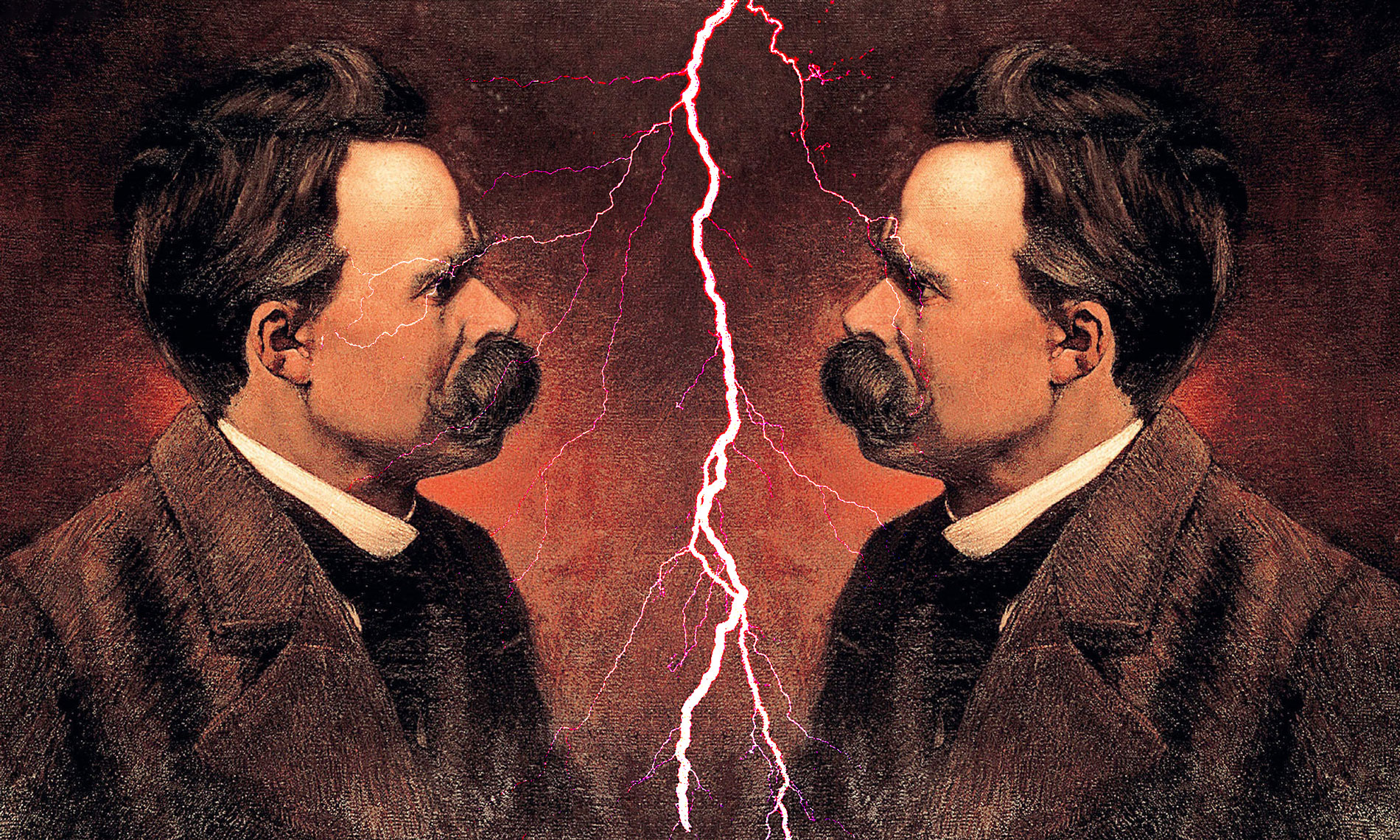
A first version of this article was published in October 2014. The current text is 75% unpublished.


